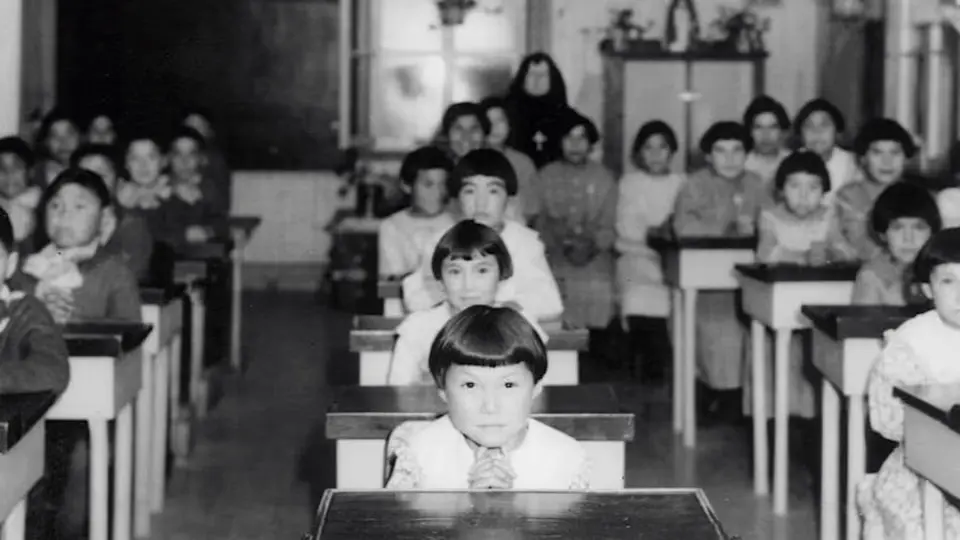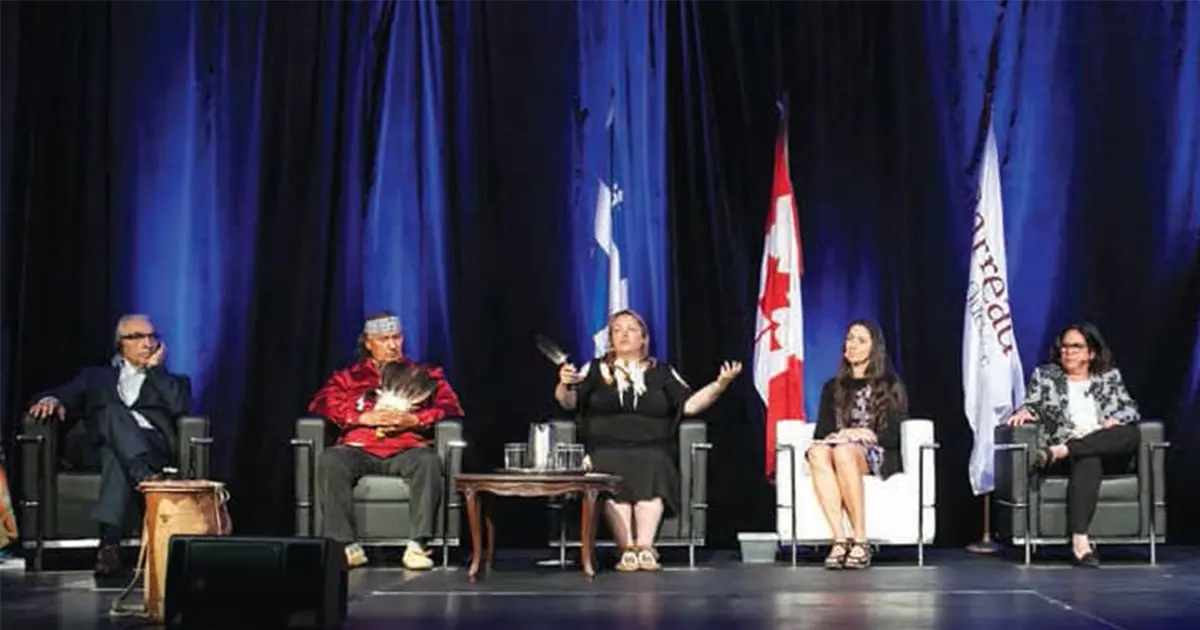The transmission of T8aminik (Dominique) Rankin, Anicinape Hereditary Chief
The Vision Keeper in me is also the one who embarked on the path of traditional indigenous medicine in 2007. One day, out of the blue, Anicinape hereditary chief T8aminik (Dominique) Rankin and his spiritual guide, William Commanda, invited me to join their spiritual lineage. Suddenly, I had gone from being a journalist to a traditional medicine apprentice. A lifelong commitment.
That same year, T8aminik became my life partner. With him, I now have the joy of teaching and bearing witness around the world. My role, in what many call the “red path”, is to be a link in the chain of transmission of age-old indigenous knowledge that has become so useful in our troubled world. In this task lies the responsibility to protect a vision of things, in the hope that it may benefit present and future generations. There’s also a sacred fire that burns in my heart in a way I never thought possible. There’s nothing more wonderful than having the feeling of receiving even more than you give, through the gift itself!


Who is Dominique Rankin ?
Grandfather T8aminik (which is how Dominique’s first name is spelled in the Anicinape language) was born in the forests of northern Quebec, into a family that had managed to preserve the nomadic lifestyle of its ancestors. At the age of 7, he was chosen to succeed his father as hereditary chief.
Traditionally, the role of chief had to be accompanied by that of medicine man. And so, from his earliest childhood, he was placed on a long path of apprenticeships and initiations not only with the elders of his community, but also with various renowned guides in Canada, notably the late William Commanda, whose close apprentice he was for many years. In 2006, Grand-father T8aminik in turn became an Elder fully recognized by his peers. His real name is Kapiteotak (“He who can be heard crying from afar”), and he now devotes himself to the role of teacher and spiritual leader for which he was destined.

Survivor of residential schools
A survivor of the terrible residential school era, he gives a vibrant account of forgiveness and reconciliation in They called us Savages, written by Marie-Josée. and first published in French under the title On nous appelait les Sauvages.


A life dedicated to the culture of his people
Once Grand Chief of the Anicinape First Nation, T8aminik often jokes that he is now “cured of politics”.
With Marie-Josée, he founded the non-profit organization Kina8at in 2013, then the Dominique Rankin Foundation in 2020, both with the mission of fostering healing and cultural reconnection among First Nations, as well as promoting reconciliation and the sharing of Indigenous cultures with all. T8aminik and Marie-Josée’s work together has led them to take action both nationally and internationally.

Recognized and honored

An international influence

- Founding President of the Dominique Rankin Foundation
- Chairman of the Board, Kina8at
- Co-chairman of the World Council of Religions for Peace (UN organization)
- Senator for the Native Friendship Centres of Canada
- Advisor and trainer at the Canadian School of Public Service and member of the Knowledge Circle on Indigenous Inclusion
- Global Committee of Chiefs and Other Traditional Actors for the Prevention of Atrocity Crimes, under the aegis of the United Nations Office of the Special Adviser on the Prevention of Genocide and the Network of Religious and Traditional Peacemakers
- Advisor to the Council for Inclusive Capitalism, created at the initiative of Pope Francis to address growing inequality and climate change
- Ethics in Action Committee, created by the Vatican, the United Nations, Religions for Peace and Notre Dame University, to develop an inter-religious moral consensus on the major challenges of integral sustainable development
- Expert Committee of the ImpactIA Foundation in Switzerland, reflecting on the challenges posed by the arrival of artificial intelligence in the world.